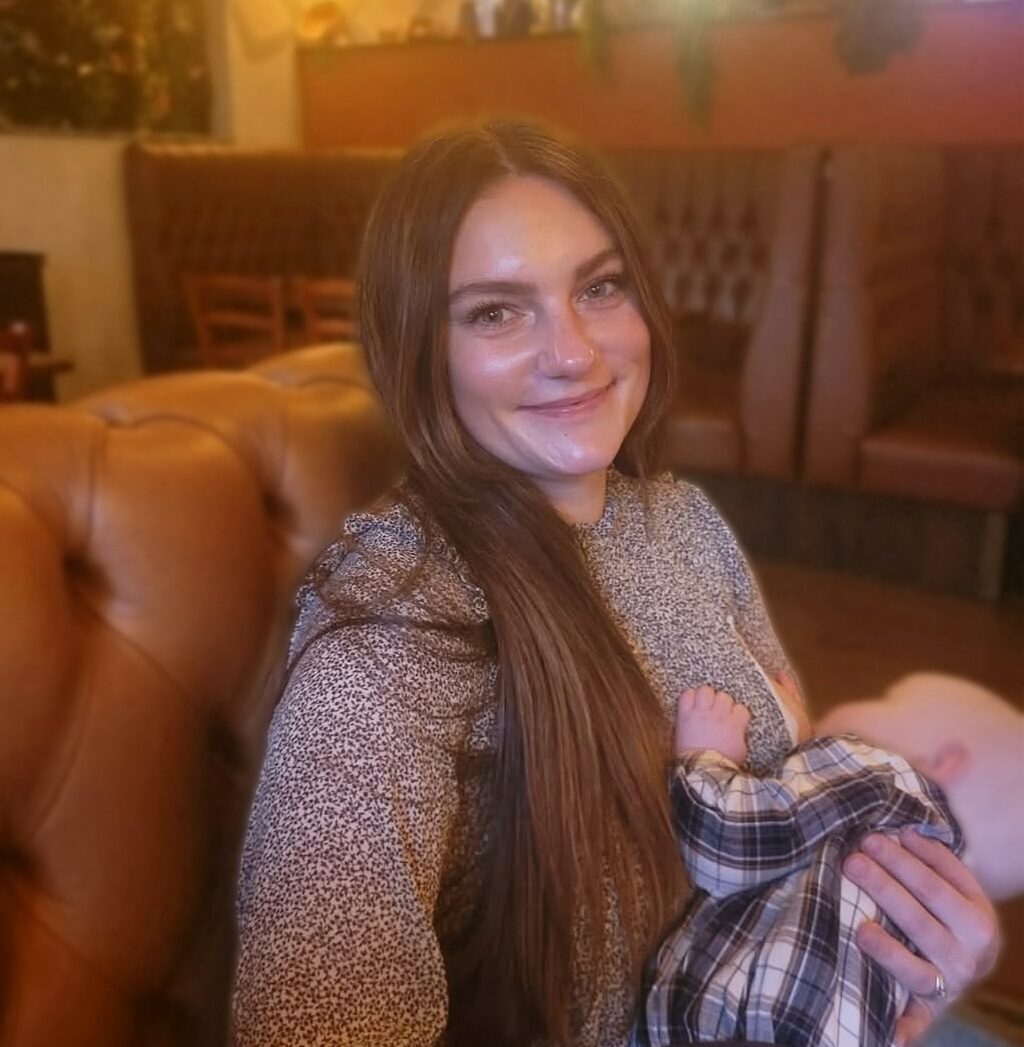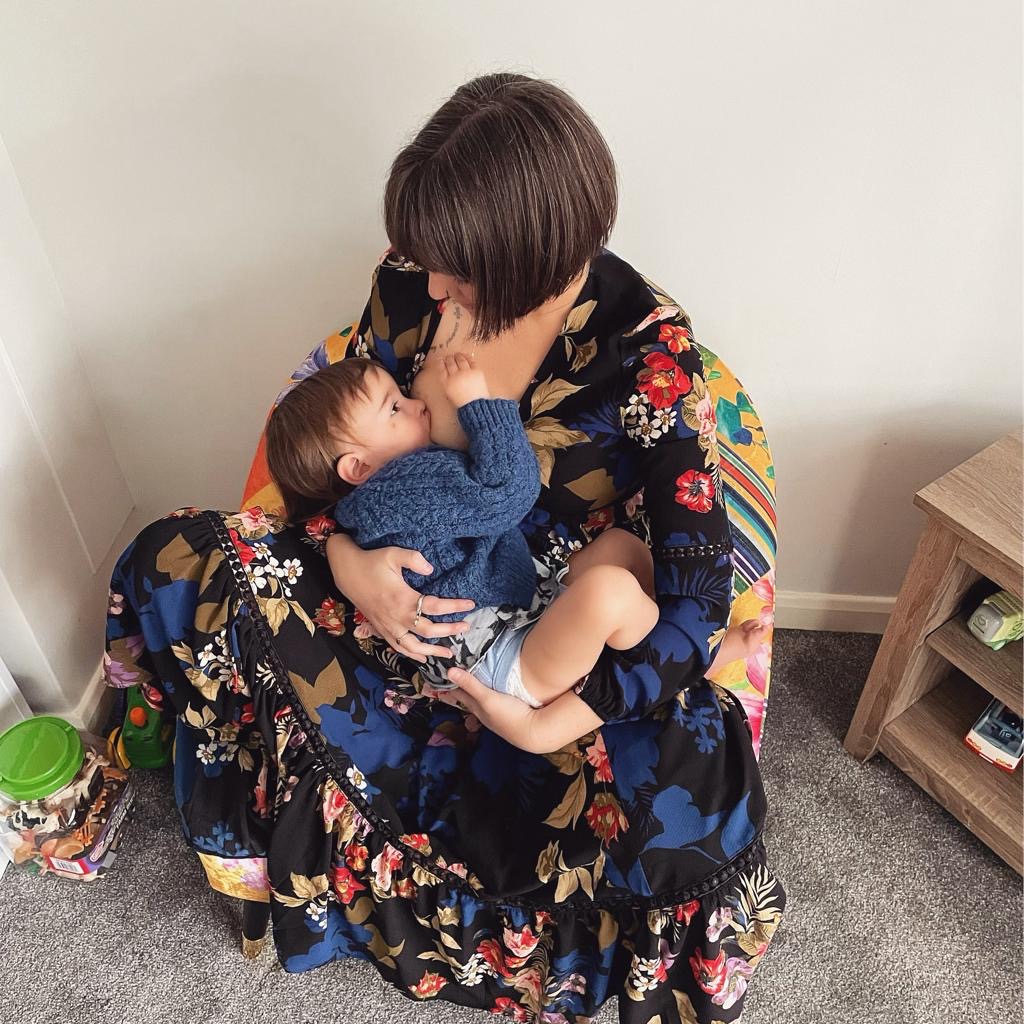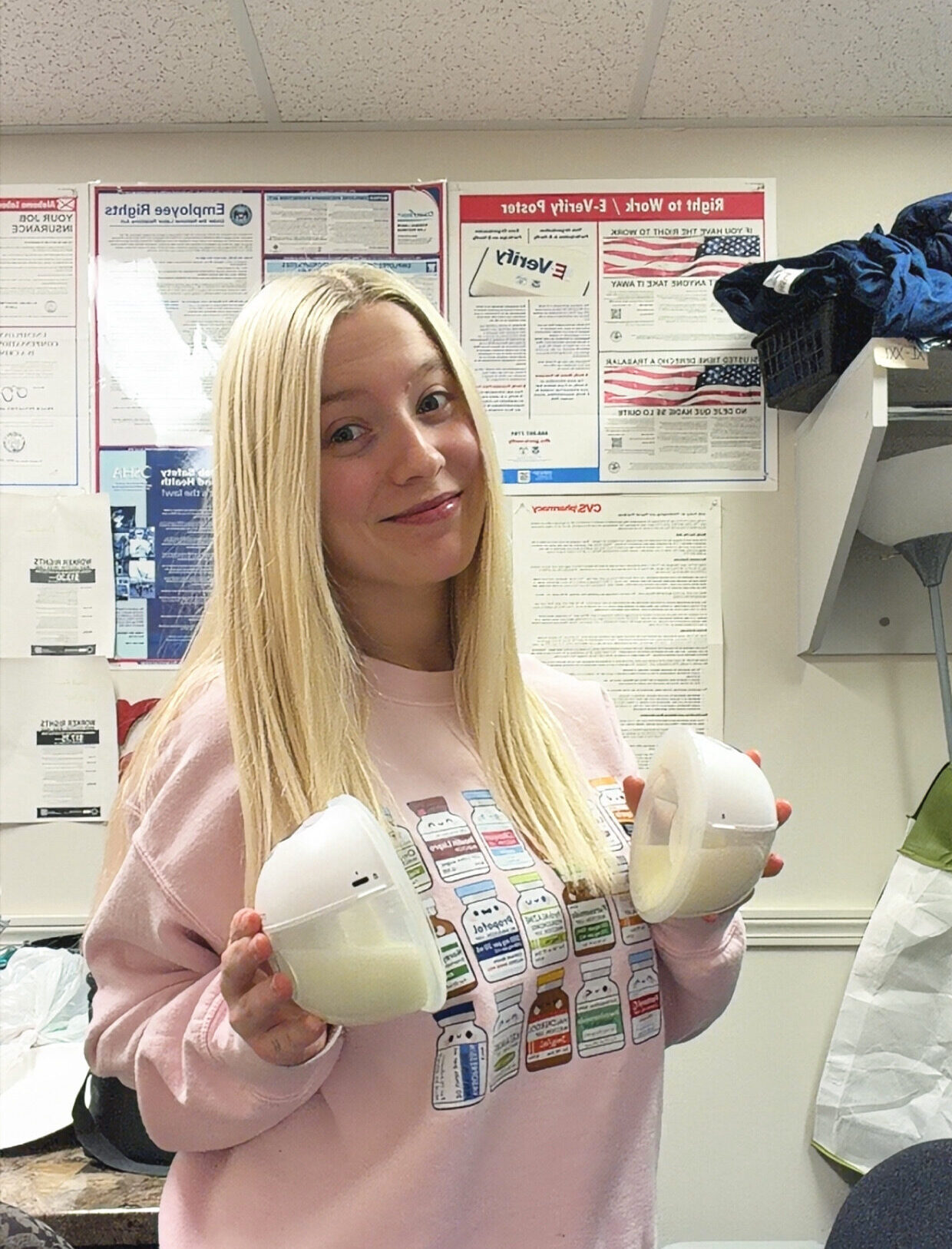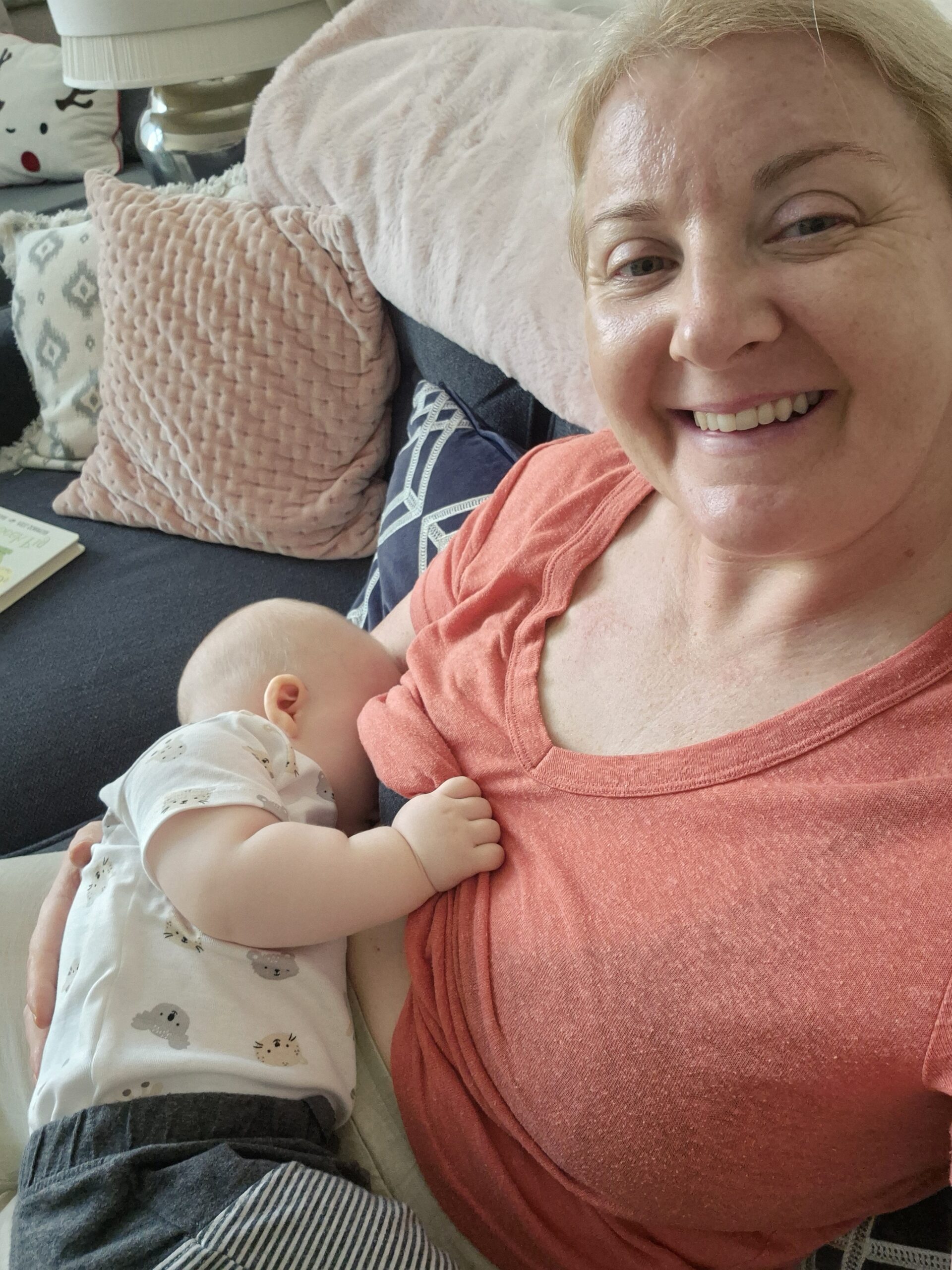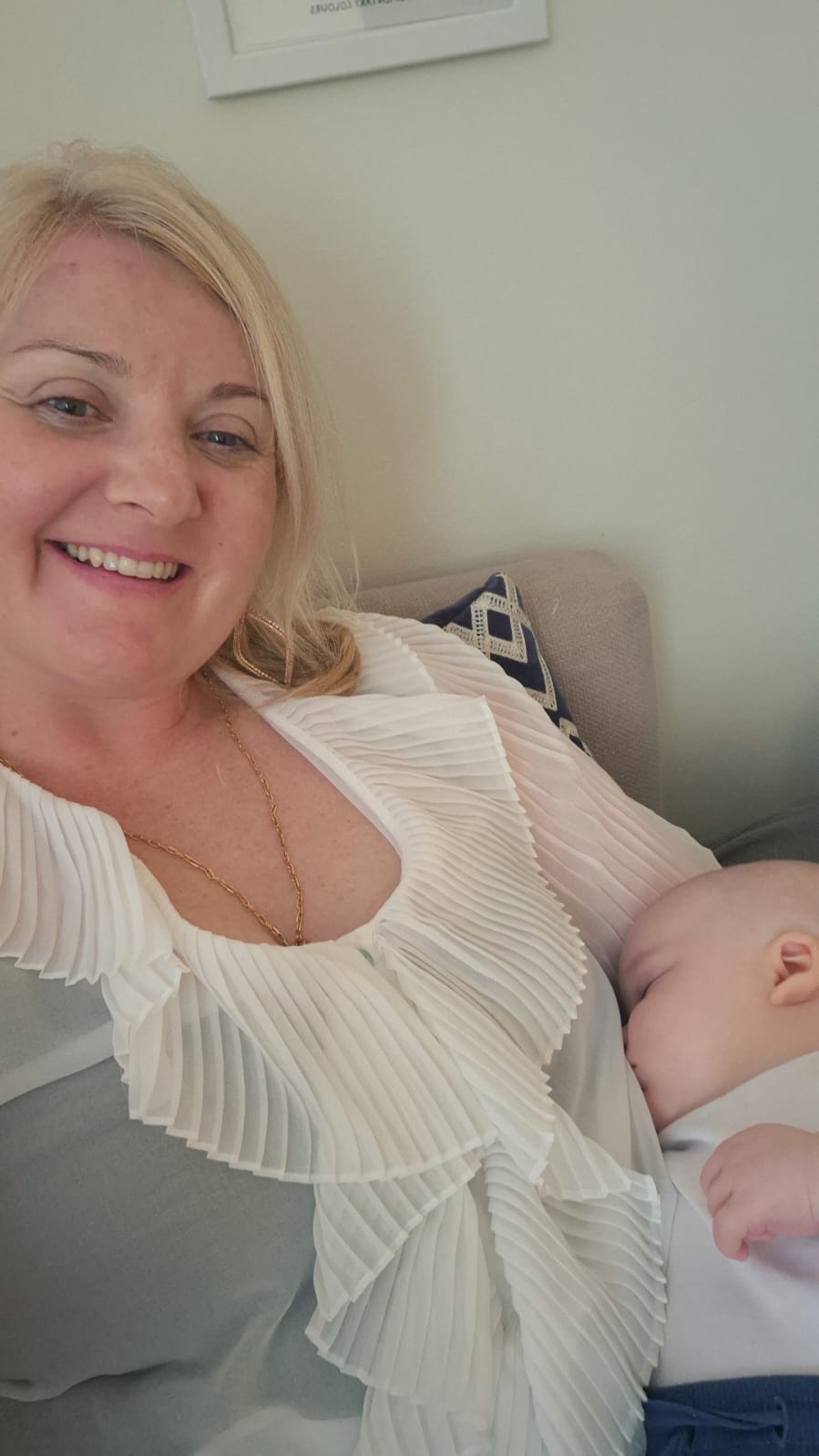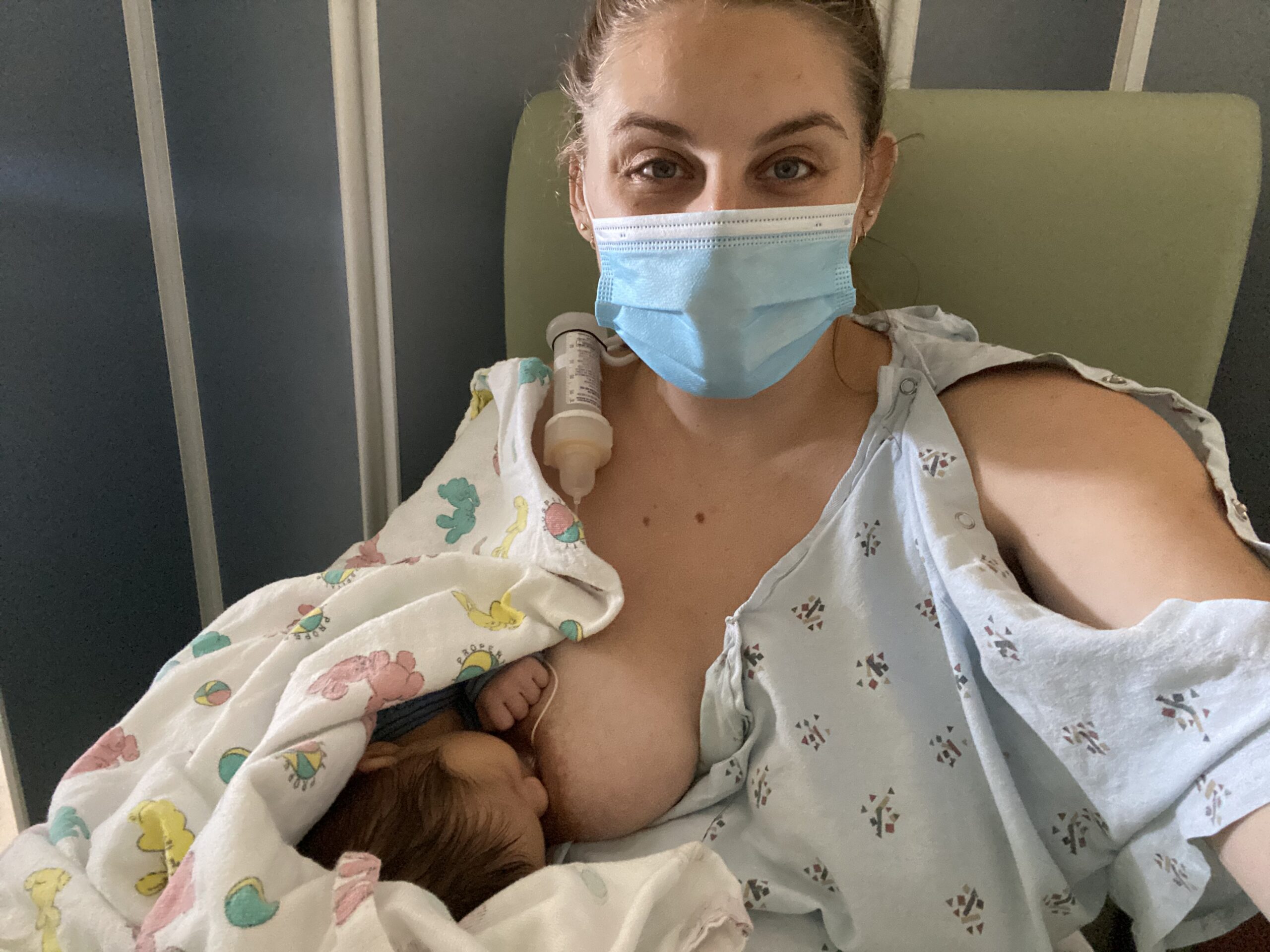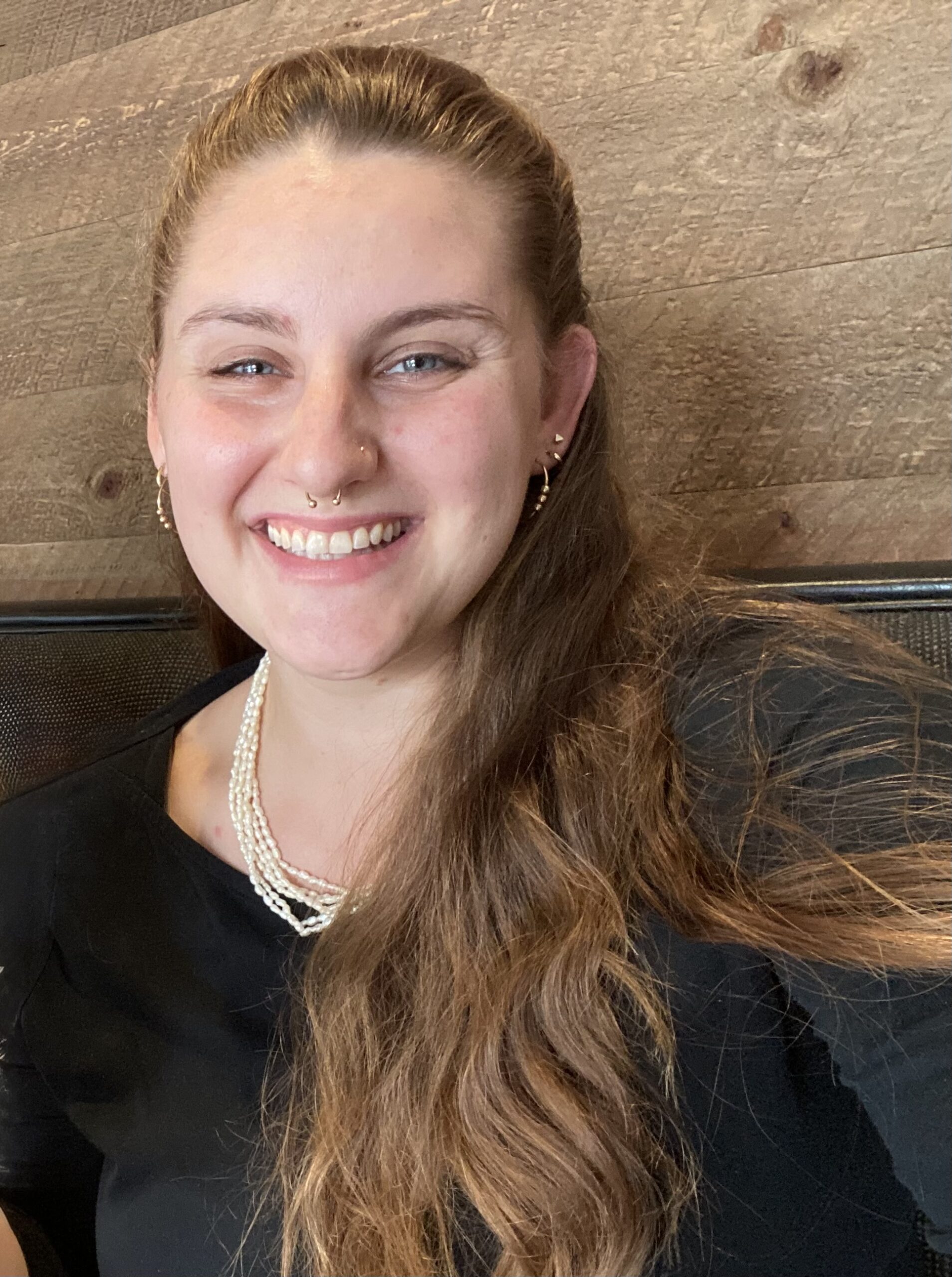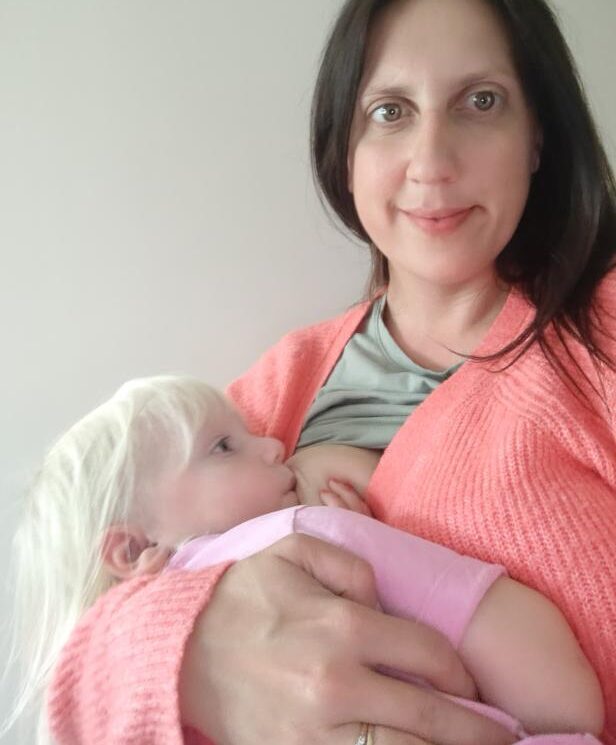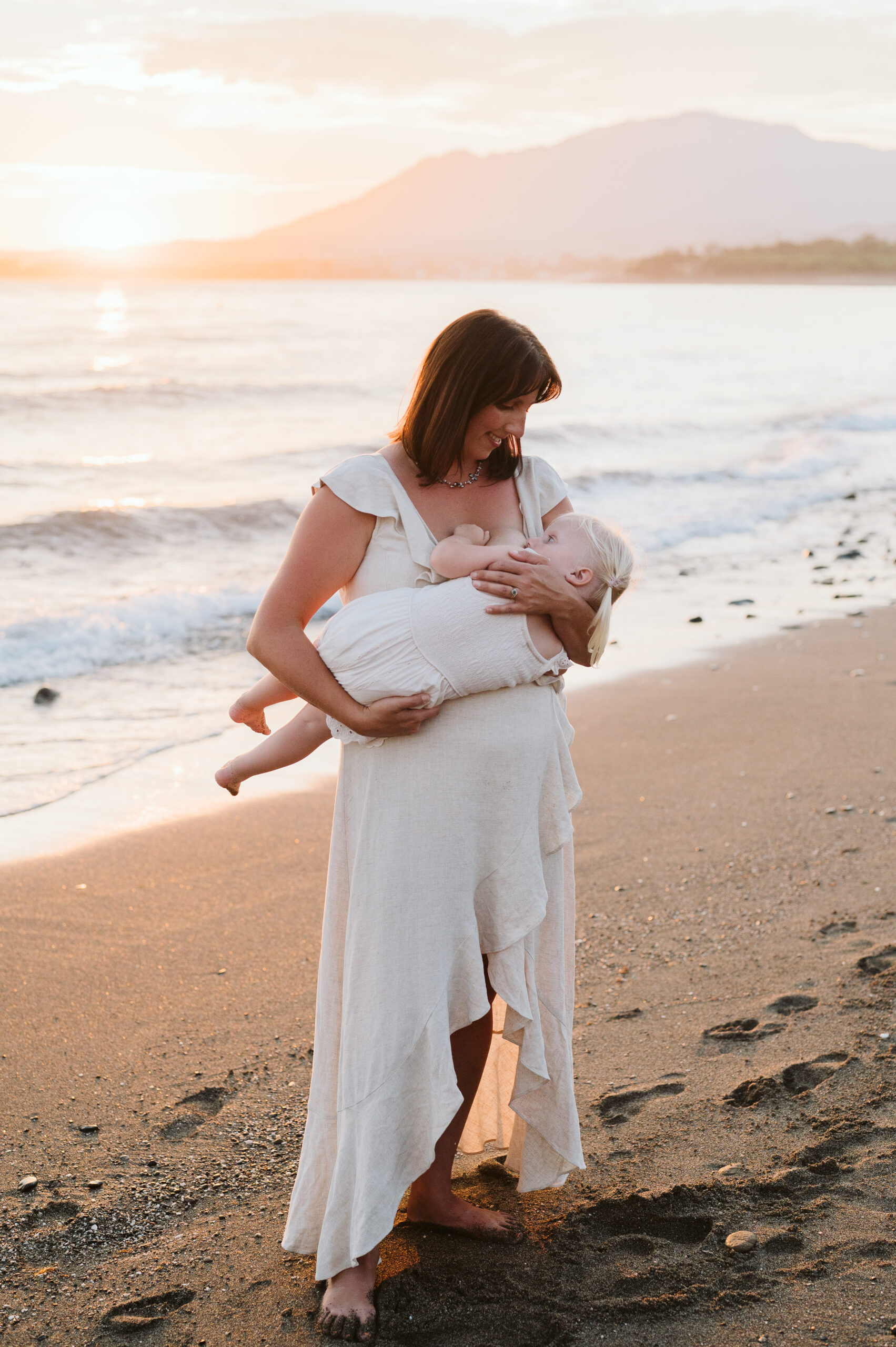I had my first daughter back in early 2018 and was elated to be a new mom and to breastfeed. My euphoria didn’t last long, as just three days after the birth I started to feel really unwell. Then, just one week after having my daughter I ended up in ICU with a life-threatening heart condition called postpartum cardiomyopathy. This was traumatic in itself, but what made matters worse is that I was told to stop breastfeeding my baby and that I couldn’t have any more children.
Days after giving birth I was dizzy and short of breath
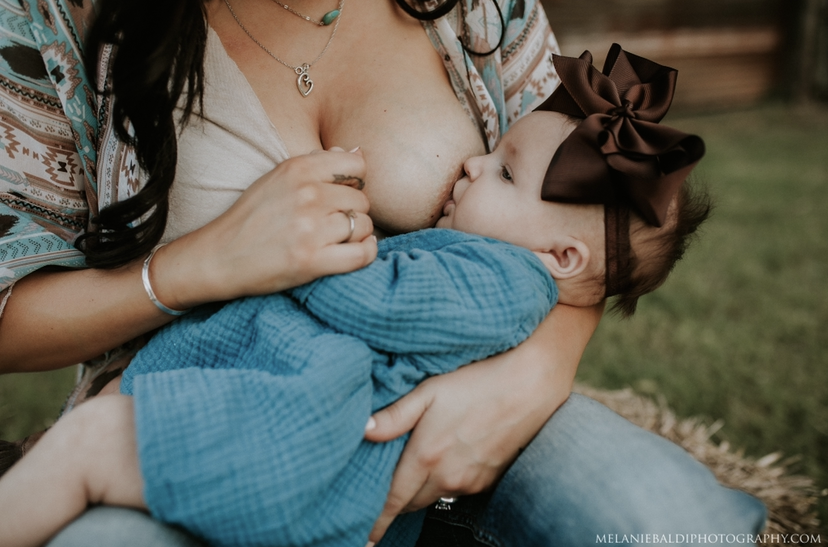
When I gave birth to my daughter Magnolia back in 2018, I was determined to breastfeed. She latched immediately after being born and did great.
Whilst she was thriving, I was not so good. Three days after she was born I started having shortness of breath. I couldn’t lay flat down, couldn’t walk, and was always dizzy. I knew something wasn’t right.
Three days after she was born I started having shortness of breath. I couldn’t lay flat down, couldn’t walk, and was always dizzy.
Lanie
I held off doing anything for a few days, hoping things would get better but they didn’t. When she was seven days old I went into the ER to be checked.
In ICU I was told I was on the verge of death
I was immediately rushed to the ICU. My heart was beating at 15%, I had fluid in my lungs, and was on the verge of dying. I got diagnosed with postpartum cardiomyopathy, which is pregnancy-related heart failure. They found out the reason for this was that I had a low placenta which erupted during labor and caused my heart to overwork.
I was told that night in the ICU that I had to immediately stop breastfeeding and shouldn’t have any more kids. You can imagine this broke my heart! I couldn’t believe what was happening. It was hard enough to process my near-death experience, never mind that I should no longer breastfeed or even have more children.
In hindsight, I wish I had have looked to get a second opinion on the medication, or at least questioned my options more. Perhaps there would have been a safer alternative that I could have taken which would have still allowed me to breastfeed?
A year and half later things were looking up
The good news is, a year and a half later, I was showing alot of improvement and was told I could stop all my medication. I was so happy! It wasn’t long after this that I found out I was pregnant with my second daughter. This was a total surprise!
Understandably, I was very scared during this pregnancy. Could my heart take it, would it relapse? But seeing a high risk doctor every month, I took all the precautions I could. When it came time to give birth, during labor my blood pressure kept rising and the doctors were scared my heart was failing again.
Against the odds I was able to breastfeed
When my little Lillie was born they sent a cardiologist in to run a test on me. I told them that I was determined to breastfeed this time no matter what. They tried to insist that I stopped breastfeeding once again. Even the lactation consultant at the hospital told me I should stop. They said my health was more important than feeding my child how I wanted to.
I told them that I was determined to breastfeed this time no matter what…They said my health was more important than feeding my child how I wanted to.
Lanie
Once again, I was left feeling heartbroken. I’d always wanted to breastfeed and I was being told my life was endangered if I did.

But, against all the odds, the tests came back normal. I was able to breastfeed without fear, and I have now been exclusively breastfeeding for seven months! I can’t quite believe how far me and my two girls have come, but I’m so proud of all we’ve come through.
What is postpartum cardiomyopathy?
Postpartum cardiomyopathy, or peripartum cardiomyopathy (PPCM) as it’s sometimes referred to, is an uncommon form of heart failure that happens during the last month of pregnancy or up to five months after giving birth. Cardiomyopathy literally means heart muscle disease.
According to Heart.org PPCM is rare in the United States, Canada, and Europe. About 1,000 to 1,300 women develop the condition in the U.S. each year. In some countries, PPCM is much more common and may be related to differences in diet, lifestyle, other medical conditions or genetics.
When coming to terms with her own condition, Lanie found comfort from savethemommies.com, a website for supporting women and their families who’ve been affected by PPCM.





